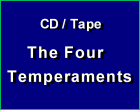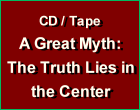Formation of Children
 |
 |
 |
 |
 |
 |
 |
On the Education of Children – II
Discipline, Correction & the Fear of God
We continue today with the second part of St. Alphonsus’ sermon commenting on the Gospel verse "A good tree cannot bring forth evil fruit, neither can an evil tree bring forth good fruit" (Mt 7:18). He addresses another important topic for parents, teaching the care and diligence a parent ought to labor to form his children well because not only his children’s eternal salvation depends on this, but also his own.
But, let us come to the second point that is, to the means of forming children in the practice of virtue. I entreat you, fathers and mothers, to remember what I now say to you; for on it the eternal salvation of your own souls and the salvation of the souls of your children depend.
Second Point. On the care and diligence with which parents ought to endeavor to form their children in habits of virtue
1. St. Paul teaches in a few words of what the proper education of children consists, that is, it is made of discipline and correction: "And you, fathers, provoke not your children to anger; but form them in the discipline and correction of the Lord." (Ephes 6: 4)

A father instructs his son,
from a 14th century Book of Devotions
By words: A good father should often assemble his children, and instill into them the holy fear of God. It was in this manner that Tobias brought up his little son. The father taught him from his childhood to fear the Lord and to abstain from sin: "And from his infancy he taught him to fear God and to abstain from sin" (Tob 1:10) The Wise Man says that a well educated son is the support and consolation of his father: "Instruct thy son, and he shall refresh thee, and shall give delight to thy soul." (Prov 24: J7)
But, as a well instructed son is the delight of his father's soul, so an ignorant child is a source of sorrow to a father's heart; for the ignorance of his obligations as a Christian is always accompanied with a bad life.
Cantipratensis relates (lib. 1, cap. 20) that, in the year 1248, an ignorant priest was commanded, in a certain synod, to make a discourse. But while he was greatly agitated by the command, the Devil appeared to him and instructed him to say: "The rectors of infernal darkness salute the rectors of parishes, and thank them for their negligence in instructing the people; because from ignorance proceed the misconduct and the damnation of many."

A daughter recites her prayers in a Breton family home
In the first place, a parent ought to instruct his children in the truths of faith, and particularly in the four principal mysteries.
First, that there is but one God, the Creator, and Lord of all things; second, that this God is a remunerator, who, in the next life, shall reward the good with the eternal glory of Paradise, and shall punish the wicked with the everlasting torments of Hell; third, the mystery of the Holy Trinity, that in God there are Three Persons who are only one God because they have but one essence; fourth, the mystery of the incarnation of the Divine Word the Son of God, and true God, who became man in the womb of Mary, and suffered and died for our salvation.
Should a father or a mother say: I myself do not know these mysteries, so how can I teach them? Can such an excuse be admitted? That is, can one sin excuse another?
If you are ignorant of these mysteries, you are obliged to learn them, and afterwards teach them to your children. At least, send your children to the Catechism classes. Oh! What a misery to see so many fathers and mothers who are unable to instruct their children in the most necessary truths of faith, and who, instead of sending their sons and daughters to learn Catholic doctrine on the feast days, employ them in other occupations of little moment; and when grown up they know not what is meant by mortal sin, Hell or Heaven.
They do not even know the Creed, the Our Father or the Hail Mary, which every Catholic is bound to learn under pain of mortal sin.
2. Religious parents not only instruct their children in these things, which are the most important of life, but they also teach them the acts which ought to be made every morning after rising.
They teach them, first, to thank God for having preserved their life during the night; second, to offer to God all the good actions they will perform and all the pains they shall suffer during the day; third, to implore of Jesus Christ and Most Holy Mary to preserve them from all sin during the day.

The family of King Philip II praying together
Some good fathers of families are careful to get a book of meditations to read, and to have mental prayer in common for half an hour every day.
This is what the Holy Ghost exhorts you to practice: "Hast thou children? Instruct them and bow down their neck from their childhood." (Eccl 7:25.) Endeavour to train them from their infancy to these religious habits, and when they grow up they shall persevere in them.
Accustom them also to go to Confession and Communion every week. Be careful to make them go to Confession when they arrive at the age of seven, and to Communion at the age of ten. This is the advice of St. Charles Borromeo. As soon as they attain the use of reason make them receive the Sacrament of Confirmation.
3. It is also very useful to infuse good maxims into the infant minds of children. Oh! What ruin is brought upon his children by the father who teaches them worldly maxims! "You must seek the esteem and applause of the world," some people say to their children. "God is merciful; He takes compassion on certain sins."
Miserable the young man who sins in obedience to such maxims. Good parents teach very different maxims to their children.
Queen Blanche, the mother of St. Louis, King of France, used to say to him: "My son, I would rather see you dead in my arms than in the state of sin."
Oh, brethren! Let it be your practice also to infuse into your children certain maxims of salvation, such as, "What will it profit us to gain the whole world, if we lose our own souls?” or “Everything on this earth has an end, but eternity never ends,” or “Let all be lost, provided God is not lost."
One of these maxims well impressed on the mind of a young person will preserve him always in the grace of God.
Continued

From St. Alphonsus Liguori, "On the Education of Children,"
Sermons of St. Alphonsus Liguori, Sermon 36,
Seventh Sunday after Pentecost,Vatican Radio Report
Posted August 24, 2013
Sermons of St. Alphonsus Liguori, Sermon 36,
Seventh Sunday after Pentecost,Vatican Radio Report
Posted August 24, 2013
______________________
______________________











